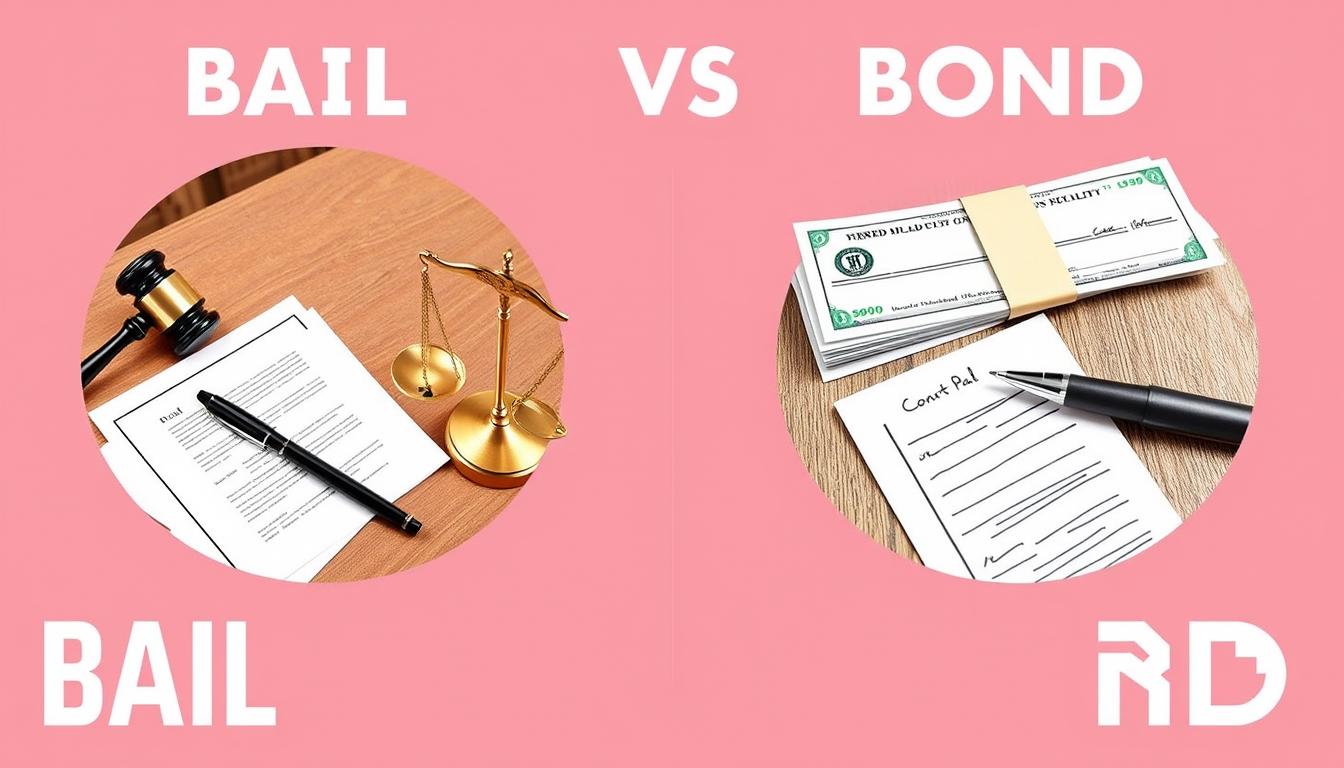How to Browse the Complexities of a Bail Bond: Tips for First-Time Users
Navigating the intricacies of a bail bond can be overwhelming for those unknown with the procedure. Several new users locate themselves perplexed by the terms and obligations included. Understanding key concepts such as premiums and collateral is crucial. Furthermore, selecting a reputable bondsman can greatly relieve the journey. Nonetheless, there are vital elements and typical pitfalls that can make complex issues further. Discovering these can offer valuable understandings for anyone facing this tough circumstance.
Recognizing Bail Bond Terms
What essential terms should one know with when passing through the world of Bail bonds? Understanding standard terminology is crucial for navigating Bail bonds effectively. The term "Bail" describes the quantity of money or residential or commercial property called for to protect a defendant's launch from protection, ensuring their appearance in court. "Bail bond" denotes an agreement between the defendant, the court, and a Bail bondsman, who offers the Bail amount for a charge, usually 10-15% of the overall Bail. "Collateral" might be needed, involving assets vowed to assure repayment if the defendant fails to appear (bail bonds service). "Costs" is the non-refundable cost paid to the Bail bondsman for their services. Furthermore, "forfeit" occurs if the offender does not conform with court looks, resulting in the loss of the Bail amount. Familiarity with these terms encourages people to make informed choices during the Bail process
The Different Types of Bail Bonds
When thinking about the numerous choices for securing a defendant's launch, one might question about the different kinds of Bail bonds available. The most typical kind is the guaranty bond, where a bondsman guarantees the full Bail amount in exchange for a fee, usually around 10%. An additional alternative is a money bond, which requires the offender or their family members to pay the entire Bail amount in cash upfront, refundable upon court look. Residential property bonds entail using real estate as collateral to protect the Bail quantity. In addition, some jurisdictions provide federal bonds for federal offenses, which have particular requirements. There are immigration bonds for individuals apprehended by immigration authorities. Each kind serves an one-of-a-kind function and may differ pertaining to expense and needs, making it necessary for newbie individuals to comprehend their options thoroughly before proceeding.
The Bail Bond Refine Explained
Comprehending the bail bond process is important for anyone maneuvering the judicial system. When an individual is detained, a court sets a Bail quantity based on the severity of the charges and the accused's flight danger. If the Bail is unaffordable, a bail bond can be obtained through a certified Bail bondsman. The accused or co-signer commonly pays a non-refundable fee, typically around 10% of the overall Bail amount.
As soon as the bond is protected, the bail bondsman assures the court that the offender will stand for all scheduled hearings. If the offender stops working to appear, the bondsman is accountable for paying the full Bail quantity, which can bring about recuperation initiatives to find the individual. Throughout this procedure, interaction with the bondsman is vital, as they provide guidance and support to guarantee compliance with court requirements and responsibilities.
Your Civil liberties as a Co-Signer
Co-signers play an important function in the bail bond procedure, as they are legally in charge of guaranteeing that the accused complies with the problems of the bond. This obligation includes particular legal rights that co-signers should recognize. To begin with, co-signers have the right to get full disclosure regarding the terms of the bond, including charges and prospective liabilities. They likewise have the right to be educated if the offender goes against any problems of the bond, such as stopping working to appear in court.
Furthermore, co-signers can ask for a copy of the bail bond contract for their records. They are qualified to comprehend the repercussions of their financial commitment, including the opportunity of being held responsible for the complete amount of the bond if the defendant does not comply. Eventually, co-signers can withdraw their assistance under specific problems, although this may require alerting the bail bond representative beforehand.

Common Mistakes to Avoid
Maneuvering the bail bond process can be complex, and co-signers often make numerous usual errors that can cause complications. One significant mistake is failing to read the whole Bail agreement, which may have vital conditions that affect their monetary responsibility. Additionally, co-signers often underestimate the importance of understanding the defendant's scenario, including their court days and prospective repercussions of non-compliance. An additional constant mistake is neglecting to keep communication with the bondsman, which can impede the procedure if issues develop. Co-signers might likewise neglect the monetary implications of Bail, not fully understanding the fees entailed or the possibility of shedding collateral. They may presume that as soon as Bail is published, their duty ends, not recognizing that they continue to be liable until the situation is solved. Staying clear of these pitfalls can greatly relieve the bail bond experience for first-time users.
Frequently Asked Concerns

Just How Do Bail Bond Business Establish the Premium Amount?
Bail bond companies typically identify the premium quantity based upon the complete Bail quantity, the risk connected with the defendant, and the try here company's policies - bail bonds service. Variables like the offender's criminal background and trip threat additionally affect this choice
Can I Discuss the Terms of a Bail Bond?
The possibility of discussing bail bond terms varies by business. Some bondsmen may supply versatility, while others stick strictly to established guidelines. It is a good idea to go over options directly with the bail bond representative for quality.
What Happens if the Defendant Misses Their Court Day?
If an offender misses their court date, a bench warrant might be issued for their arrest. Furthermore, the bail bond may be surrendered, leading to economic effects for the co-signer and possible legal difficulties for the offender.
Are Bail Bond Costs Refundable After the Case Ends?
Bail bond fees are normally non-refundable, regardless of the situation end result. This charge makes up the bond representative for the solution of safeguarding the offender's click this launch, covering risks and management prices associated with the procedure.
Can I Use Security Various Other Than Residential Or Commercial Property for a Bail Bond?
The inquiry of utilizing security past home for a bail bond typically emerges. Lots of bail bond agents accept numerous forms of security, such as automobiles or beneficial items, but policies might differ by agency and territory.
"Bail bond" signifies an agreement in between the defendant, the court, and a Bail bondsman, that gives the Bail amount in exchange for a cost, generally 10-15% of the total Bail. The most usual kind is the surety bond, where a Bail bondsman assures the full Bail amount in exchange for a charge, commonly around 10%. If the Bail is expensive, a bail bond can be obtained via a qualified Bail bondsman. Co-signers play a vital role in the bail bond procedure, as they are lawfully liable for making certain that the defendant adheres to the conditions of the bond (bail bonds my company service). Bail bond business commonly identify the costs quantity based on the overall Bail amount, the threat connected with the offender, and the company's plans